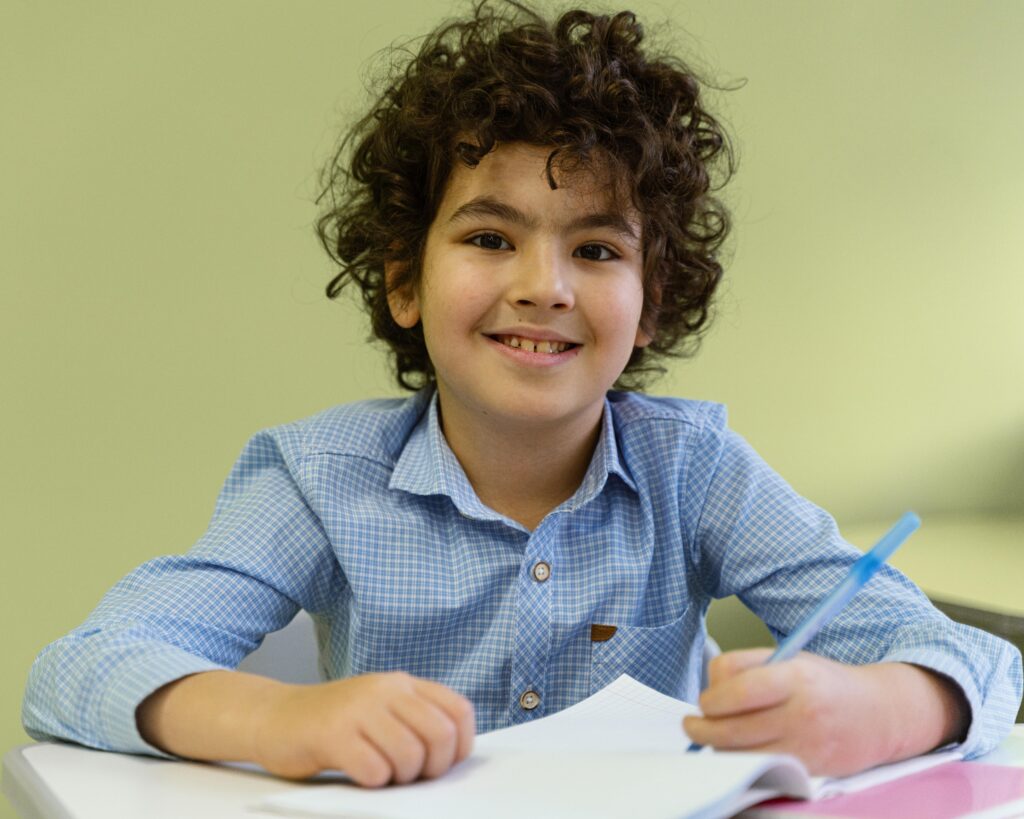Critical thinking skills are indispensable in life – both personally and professionally. While critical thinking may be taught at school, its relevance lies outside its walls as well. From CEO evaluation of group projects to nursing decisions about treatment for patients requiring critical thinking, it helps you weigh your options effectively and make sound decisions. The ability to think critically is a trait every human must possess to lead a better and more successful life.
Critical thinking has never been more essential in today’s complex environment, enabling individuals to create balanced arguments, express themselves clearly, and absorb information efficiently. Cultivating the ability to think critically and practicing critical thinking skills is essential for the better development of kids, both mentally and emotionally. It will also help them lead a more successful life. It is a skill better taught during the early stage of life for them to better understand and grasp it.
What is Critical thinking?
Critical thinking skills allow you to assess your beliefs and opinions for greater understanding and judgment. They’re an incredibly useful skill in any business setting. Furthermore, critical thinking helps leaders influence others through change management efforts while simultaneously seeing all sides of a situation to create solutions that benefit everyone involved. Critical thinking and writing skills are essential; it would be challenging for kids and adults to solve problems quickly or recover from conflicts without them.
Making sure your child receives an education from the best institution in the most appropriate way is more important than simply educating them. When analyzing information from outside sources, critical thinkers can use this approach to assess their own beliefs for bias, faults, and errors. It’s advisable to teach critical thinking to your kids from their earlier stages of education. If you are a parent from Gujarat, India, Nalanda International School is the right place for your child. It is undoubtedly the best English medium school in Vadodara that emphasizes cultivating critical thinking in students from their early childhood.
Critical thinkers always remain on guard against any possible sources of bias in the information received; critical thinkers remain open-minded enough to modify their viewpoints when new data arises. Furthermore, there are several critical thinking strategies for good writing skills that can help your kids grow and cultivate the right habits and perspective toward writing and expressing themselves through words. Not only can this be helpful to them emotionally, but also professionally.
Below Discussed are The Top 5 Steps of Critical Thinking:

1. Promote Reading Habit in Them
Reading can strengthen a child’s critical thinking by challenging them to analyze information from multiple sources and think open-mindedly. Furthermore, reading can also develop language skills necessary for writing. Students at some of the best ICSE schools in Vadodara are exposed to various genres and styles of writing that give them experience in writing in various tones and styles while learning proper citation skills – something essential for good writers.
Students writing essays must be able to evaluate existing arguments, which includes evaluating whether or not the information presented is reliable and how it was collected. Critical thinking and writing skills go hand in hand, and understanding their purpose is vital to get the utmost command of these skills. Furthermore, critical thinking helps develop self-awareness through self-examination of beliefs.
2. Let Them Ask Questions
Writing is a form of communication, yet it also involves asking questions and analyzing information to gain a comprehensive knowledge base on any given subject. Critical thinking involves considering hard evidence rather than subjective opinions or preferences/dislikes. Academics and business professionals agree that critical thinking skills are a cornerstone of an excellent education. It’s advisable that parents and teachers let their children ask questions about what they are studying and pursuing.
The more their curiosities are satisfied, the more they become more confident and controlled. Assigning students three minutes of free writing on any one topic before class starts can help clarify their thoughts and focus on what’s most significant to them. These activities will enable students to interact more effectively with others and motivate them to ask more and more questions.
3. Motivate Them to Talk to People
Critical thinking is an invaluable cognitive skill. It protects against biases and propaganda, reduces partisanship, and provides a more well-rounded perspective of the world around you. Critical thinking can also be used to identify the root causes of problems and find solutions more efficiently. Critical thinking should include both rational and emotional intelligence, so incorporating mindfulness practices, meditation, or other methods to manage emotions into critical thinking is also necessary.
To develop it further, parents and teachers should encourage kids to spend time speaking with people from diverse backgrounds, cultures, and political affiliations. They should be encouraged to ask questions and explore new perspectives; this will stimulate cognitive shifts that prevent heuristics or biases from overshadowing their decision-making and problem-solving abilities.
4. Educate Them About The Importance of Listening
Developing your critical thinking abilities can be greatly aided by understanding how others think. You can learn why people around them made specific decisions by observing their cognitive processes. Listening and questioning others’ opinions are also important elements of effective management, helping avoid initial assumptions that lead to biased thinking. It’s vital for students to cultivate the ability to think critically to lead a better and more productive lifestyle.
Making educated decisions is crucial in both your personal and professional lives, so it’s important to learn and practice the art of listening. Mid-level professionals with good critical thinking abilities frequently receive praise at work for their ability to objectively analyze events and come to informed judgments that benefit their teams.
5. Help Them Analyze Their Thoughts While Writing
Critical thinking and writing help students strengthen both their ability to think clearly and cultivate higher-level thinking, especially within certain disciplines such as science, where writing helps encourage analytical reasoning. Furthermore, analyzing the thoughts in the right and most prominent way improves their capacity to efficiently absorb vital information. Helping your kids practice critical thinking and analyzing their thoughts is highly advisable for their better and more controlled future.
Critical analysis involves conducting an in-depth examination and evaluation of another person’s ideas or work, such as literature, film or TV shows, business processes, academic reports, or presentations given by peers. An effective critical analysis should reveal both positive and negative aspects of its subject while remaining impartial and unbiased.
6. Significance of Critical Thinking
Critical thinking involves three skills that combine to produce effective decision-making: analyze, infer, and evaluate. Analyzing involves dissecting problems into their constituent parts and establishing their relationships; inferring is used to establish what information exists about a situation; finally, evaluating allows one to make reasoned judgments by reconciling known with unknown information. Reach out to Nalanda International School to learn more about the importance and significance of critical thinking.
Critical thinking involves many key characteristics, including attentiveness and the ability to recognize what information is most pertinent in any given circumstance. These skills are key in everyday life as well as in the workplace, where workers must judge how much time to devote to an assignment and which data is most pertinent when conducting online research; otherwise, you risk spending your precious time researching irrelevant details and wasting your time!
If you are a parent and figuring out what are the best critical thinking strategies for good writing skills for kids, it’s highly advisable to reach out to an expert, teacher, or child psychologist. They may help you get the best solutions and methodologies to help your kids practice critical thinking for better and in-depth writing. Critical thinking involves gathering knowledge from various sources and analyzing it to form an understanding that can be expressed to an audience in written text, speeches, or even listening ears.
Critical thinkers understand the challenges associated with workplace environments where decisions happen quickly; making hasty decisions can lead to costly errors and mistakes. Critical thinkers know this, which enables them to pause before making any hasty choices and gather all relevant data before making decisions that benefit both themselves and their company. This approach ensures more productivity at work while making well-informed business decisions for themselves and their company.
Conclusion
Critical thinkers understand their own biases and strive to recognize how these may influence the questions they pose or interpret materials. This is an essential aspect of critical thinking; being conscious that your emotions could sway how you judge situations or questions is key in order to avoiding emotional bias when making assessments and minimizing such influences on evaluations.
Critical thinking requires being open-minded and objective, with an ability to recognize biases in other people’s statements as well as your own. While critical thinking can be taught at home, parents are highly advised to admit their children to Nalanda International School, the best English medium school in Vadodara, which promotes and emphasizes the importance of critical thinking in kids.
To learn more about Nalanda International School and how your kid can learn and practice critical thinking and writing skills, contact us now!

